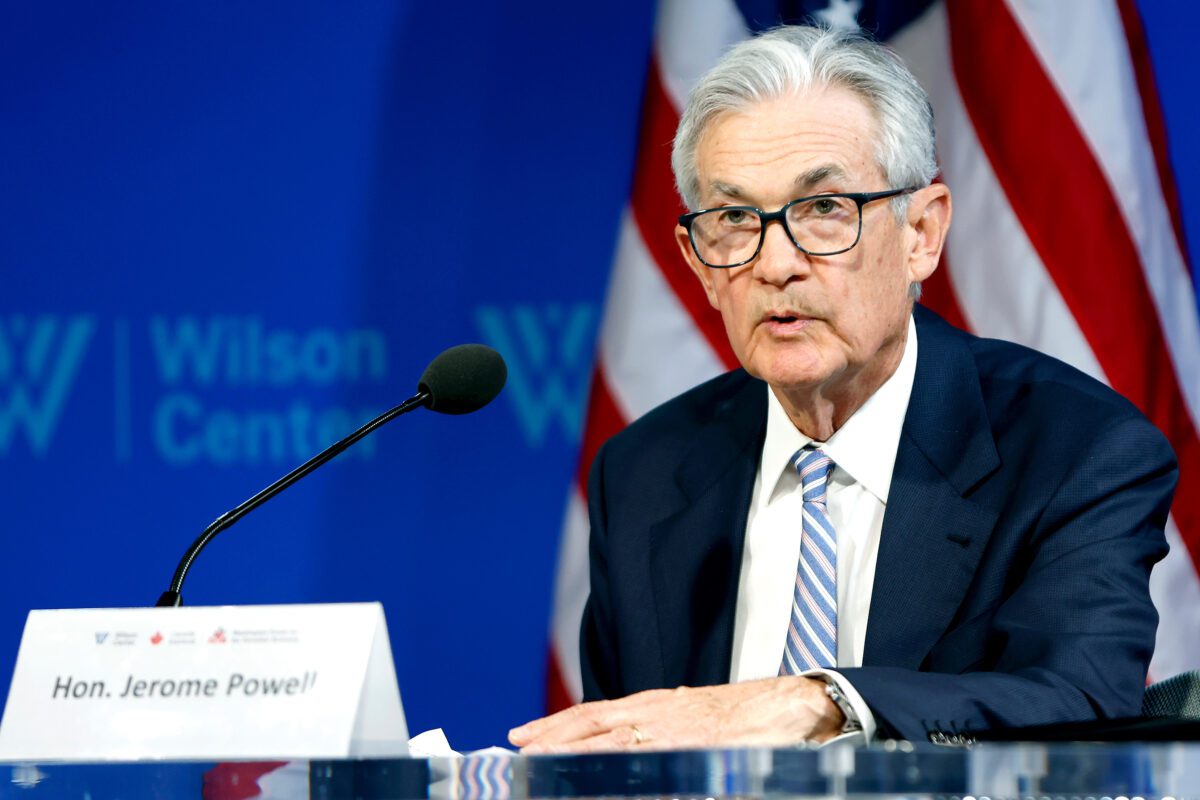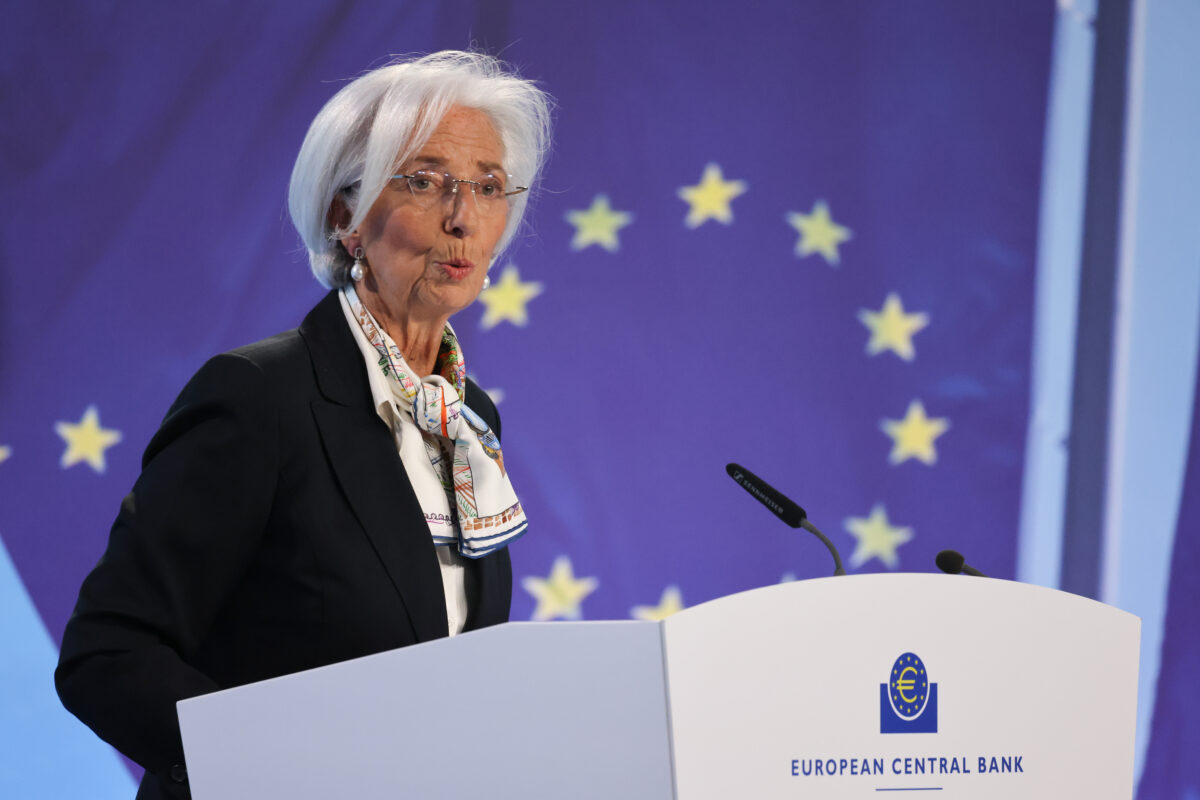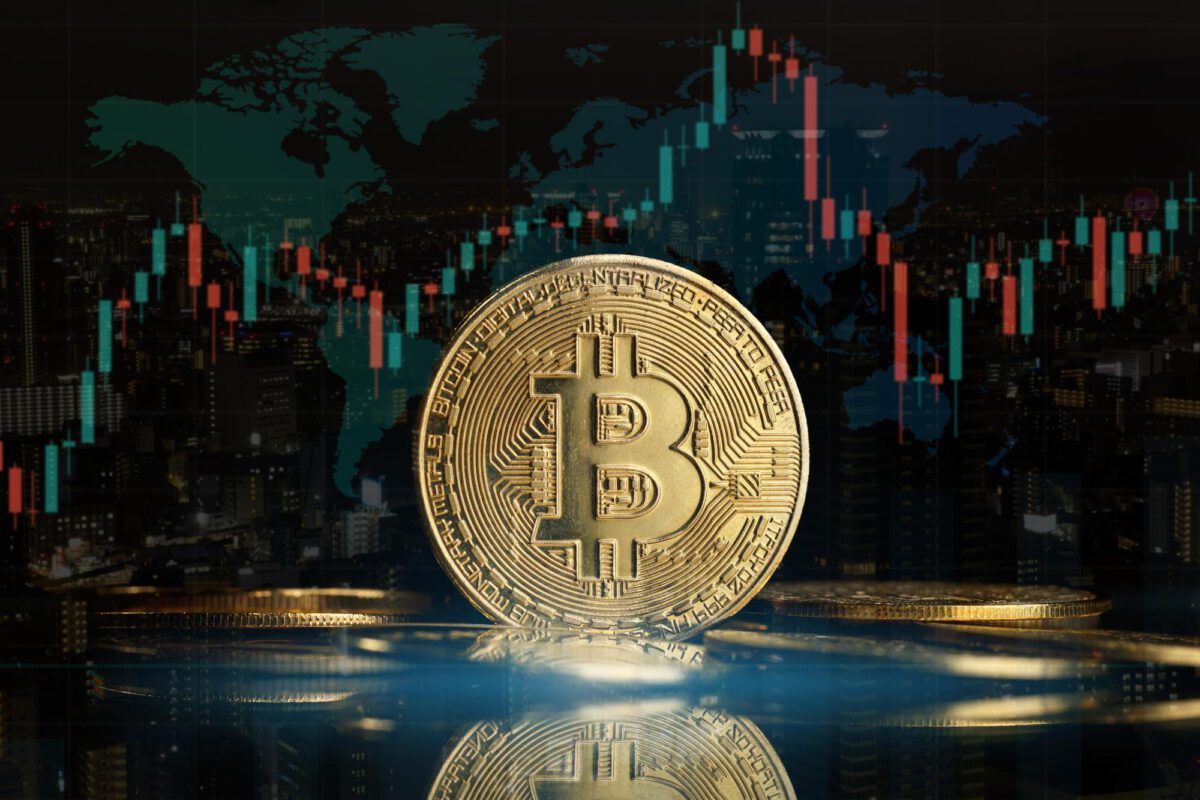Die zentralen Aussagen Powells:
– viele FOMC-Mitglieder für baldige Zinssenkung
– Unsicherheiten belasten Ausblick für Wirtschaft
– Inflation bleibt eingedämmt: „a number of government policy issues have yet to be resolved, including trade developments, the federal debt ceiling, and Brexit. And there is a risk that weak inflation will be even more persistent than we currently anticipate“
– Arbeitsmarkt bleibt stark, Ausblick für US-Wirtschaft solide
– Konsum war zuletzt schwächer, hat sich aber erholt
– Inflation durch Handelskonflikt niedriger
– Fed wird alles tun, um Wachstum der US-Wirtschaft zu erhalten
– „Bereit, angemessen zu handeln“
Kurzfazit FMW: Powell liefert! Klare Ankündigung einer Zinssenkung, um das Wachstum aufrecht zu erhalten – eine Art Vorsichtsmaßnahme. Insgesamt dovish, daher Aktienmärkte und Gold nach oben, Dollar und Anleiherenditen nach unten. Die Fed Fund Futures preisen nun mit 100% eine 0,25%-Senkung ein..was eigentlich ja schon eingepreist war, wie Zyniker bemekerken:
Market surging because Powell confirmed a 25bps rate cut is coming… which was fully priced in by the market
— zerohedge (@zerohedge) July 10, 2019
Hier der Redetext Powells im Wortlaut:
Chairwoman Waters, Ranking Member McHenry, and other members of the Committee, I am pleased to present the Federal Reserve’s semiannual Monetary Policy Report to Congress.
Let me start by saying that my colleagues and I strongly support the goals of maximum employment and price stability that Congress has set for monetary policy. We are committed to providing clear explanations about our policies and activities. Congress has given us an important degree of independence so that we can effectively pursue our statutory goals based on objective analysis and data. We appreciate that our independence brings with it an obligation for transparency so that you and the public can hold us accountable.
Today I will review the current economic situation and outlook before turning to monetary policy. I will also provide an update of our ongoing public review of our framework for setting monetary policy.
Current Economic Situation and Outlook
The economy performed reasonably well over the first half of 2019, and the current expansion is now in its 11th year. However, inflation has been running below the Federal Open Market Committee’s (FOMC) symmetric 2 percent objective, and crosscurrents, such as trade tensions and concerns about global growth, have been weighing on economic activity and the outlook.
The labor market remains healthy. Job gains averaged 172,000 per month from January through June. This number is lower than the average of 223,000 a month last year but above the pace needed to provide jobs for new workers entering the labor force. Consequently, the unemployment rate moved down from 3.9 percent in December to 3.7 percent in June, close to its lowest level in 50 years. Job openings remain plentiful, and employers are increasingly willing to hire workers with fewer skills and train them. As a result, the benefits of a strong job market have been more widely shared in recent years. Indeed, wage gains have been greater for lower-skilled workers. That said, individuals in some demographic groups and in certain parts of the country continue to face challenges. For example, unemployment rates for African Americans and Hispanics remain well above the rates for whites and Asians. Likewise, the share of the population with a job is higher in urban areas than in rural communities, and this gap widened over the past decade. A box in the July Monetary Policy Report provides a comparison of employment and wage gains over the current expansion for individuals with different levels of education.
Gross domestic product increased at an annual rate of 3.1 percent in the first quarter of 2019, similar to last year’s pace. This strong reading was driven largely by net exports and inventories-components that are not generally reliable indicators of ongoing momentum. The more reliable drivers of growth in the economy are consumer spending and business investment. While growth in consumer spending was weak in the first quarter, incoming data show that it has bounced back and is now running at a solid pace. However, growth in business investment seems to have slowed notably, and overall growth in the second quarter appears to have moderated. The slowdown in business fixed investment may reflect concerns about trade tensions and slower growth in the global economy. In addition, housing investment and manufacturing output declined in the first quarter and appear to have decreased again in the second quarter.
After running close to our 2 percent objective over much of last year, overall consumer price inflation, measured by the 12-month change in the price index for personal consumption expenditures (PCE), declined earlier this year and stood at 1.5 percent in May. The 12-month change in core PCE inflation, which excludes food and energy prices and tends to be a better indicator of future inflation, has also come down this year and was 1.6 percent in May.
Our baseline outlook is for economic growth to remain solid, labor markets to stay strong, and inflation to move back up over time to the Committee’s 2 percent objective. However, uncertainties about the outlook have increased in recent months. In particular, economic momentum appears to have slowed in some major foreign economies, and that weakness could affect the U.S. economy. Moreover, a number of government policy issues have yet to be resolved, including trade developments, the federal debt ceiling, and Brexit. And there is a risk that weak inflation will be even more persistent than we currently anticipate. We are carefully monitoring these developments, and we will continue to assess their implications for the U.S economic outlook and inflation.
The nation also continues to confront important longer-run challenges. Labor force participation by those in their prime working years is now lower in the United States than in most other nations with comparable economies. As I mentioned, there are troubling labor market disparities across demographic groups and different parts of the country. The relative stagnation of middle and lower incomes and low levels of upward mobility for lower-income families are also ongoing concerns. In addition, finding ways to boost productivity growth, which leads to rising wages and living standards over the longer term, should remain a high national priority. And I remain concerned about the longer-term effects of high and rising federal debt, which can restrain private investment and, in turn, reduce productivity and overall economic growth. The longer-run vitality of the U.S. economy would benefit from efforts to address these issues.
Monetary Policy
Against this backdrop, the FOMC maintained the target range for the federal funds rate at 2‑1/4 to 2-1/2 percent in the first half of this year. At our January, March, and May meetings, we stated that we would be patient as we determined what future adjustments to the federal funds rate might be appropriate to support our goals of maximum employment and price stability.
At the time of our May meeting, we were mindful of the ongoing crosscurrents from global growth and trade, but there was tentative evidence that these crosscurrents were moderating. The latest data from China and Europe were encouraging, and there were reports of progress in trade negotiations with China. Our continued patient stance seemed appropriate, and the Committee saw no strong case for adjusting our policy rate.
Since our May meeting, however, these crosscurrents have reemerged, creating greater uncertainty. Apparent progress on trade turned to greater uncertainty, and our contacts in business and agriculture report heightened concerns over trade developments. Growth indicators from around the world have disappointed on net, raising concerns that weakness in the global economy will continue to affect the U.S. economy. These concerns may have contributed to the drop in business confidence in some recent surveys and may have started to show through to incoming data.
In our June meeting statement, we indicated that, in light of increased uncertainties about the economic outlook and muted inflation pressures, we would closely monitor the implications of incoming information for the economic outlook and would act as appropriate to sustain the expansion. Many FOMC participants saw that the case for a somewhat more accommodative monetary policy had strengthened. Since then, based on incoming data and other developments, it appears that uncertainties around trade tensions and concerns about the strength of the global economy continue to weigh on the U.S. economic outlook. Inflation pressures remain muted.
The FOMC has made a number of important decisions this year about our framework for implementing monetary policy and our plans for completing the reduction of the Fed’s securities holdings. At our January meeting, we decided to continue to implement monetary policy using our current policy regime with ample reserves, and emphasized that we are prepared to adjust any of the details for completing balance sheet normalization in light of economic and financial developments. At our March meeting, we communicated our intention to slow, starting in May, the decline in the Fed’s aggregate securities holdings and to end the reduction in these holdings in September. The July Monetary Policy Report provides details on these decisions.
The July Monetary Policy Report also includes an update on monetary policy rules. The FOMC routinely looks at monetary policy rules that recommend a level for the federal funds rate based on inflation and unemployment rates. I continue to find these rules helpful, although using these rules requires careful judgment.
We are conducting a public review of our monetary policy strategy, tools, and communications-the first review of its kind for the FOMC. Our motivation is to consider ways to improve the Committee’s current policy framework and to best position the Fed to achieve maximum employment and price stability. The review has started with outreach to and consultation with a broad range of people and groups through a series of Fed Listens events. The FOMC will consider questions related to the review at upcoming meetings. We will publicly report the outcome of our discussions.
Thank you. I am happy to respond to your questions.
Kommentare lesen und schreiben, hier klicken













Hat irgendjemand wirklich etwas anderes erwartet ???
@Roberto
Nein, nicht wirklich. :-)
Man sollte künftig wirklich long gehen, bevor Powell spricht. Selbst wenn die Märkte eine Zinssenkung zuvor bereits zu 100% eingepreist haben, feiern sie sie bei Bestätigung jedes Mal noch einmal. Von wegen „Buy the rumor, sell the fact!“ Diese Börsenweisheit taugt nichts und sollte geändert werden in „Buy the rumor, buy the fact!“
JETZT kommt die letzte Rallye von 20-40% , damit es dann nicht so weh tut wenns knallt und die Kurse sich halbieren! Logische Lügen und Betrügen bis zum Tod Mentalität der Menschheit (vorwiegend aus dem USD Lager)!!!
Wenn der Knall dann kommt, sollten dann diese ganze White House Mannschaft, welche auch die FED manipuliert, öffentlich an den Galgen. Anders werden nächste Generationen dieser Gesellschaft es nicht verstehen, dass die Konsequenzen schlimmer als Geldstrafen sein können. Aber soviele Galgen gibt es garnicht, weil einfach viel zu viele drin hängen. Trotzdem muss wohl wieder einer kommen, der mal so richtig die Welt schockiert in dem es richtig aufgeräumt wird.
MfG
Faktist
@Faktist, das ist mit der Galgen-Metapher hart an der Grenze! Bitte im Ton mäßigen!
@Markus Fugmann,
im Rahmen der Meinungsfreiheit ist die Galgen-Metapher von Faktist etwas überspitzt, wohl wahr.
Dennoch wissen wir wie diese Geschichte der Geldpolitik enden wird.
Wer wird dafür die Verantwortung tragen wenn Millionen ihr Hab und Gut verlieren und aus Verzweiflung das Leben?
Werden wir auch wie in Venezuela Hunde essen und uns um Nahrung prügeln oder Schlimmeres?
Ja, die Hoffnung stirbt zum Schluß und jeder hofft das der Kelch an uns vorbei geht.
Irgendwie bin ich zu sehr Realist um der heutigen Wohlstandsillusion noch etwas positives abzugewinnen.
Unsere Eliten sind völlig inkompetent oder wahnsinnig. Beides scheint wohl sehr nahe beieinander zu liegen.
Und irgendjemand wird dafür bezahlen und wenn es der Laternenorden ist.
So und nicht anders wird es kommen,das ist die menschliche Natur.
@Markus Fugmann, schon klar… daher mäßige ich mich ja schon um im Rahmen der allgemeinen Friedenskultur nicht zu viele zu schocken. Aber ein Beitrag zur Wahrheitsfindung sollte der Welt nicht schaden.
@all, wie man gerade sehen kann, hangeln sich die Kurse gerade einfach so hoch, ohne dass man dran glauben könnte, dass hinter den Kurse echte Unternehmen stehen. Die haben gerade einfach mal an Wert gewonnen, obwohl die Umsätze stagnieren und Margen sinken. Vielleicht ist es ja einen neue Art der Ökonomie „Fantanomie“??? Also eine Art Fantasy Wirtschaft!?
Die Bildauswahl der FMW ist jedesmal treffend.
Wir sehen einen schweissgebadeten Mensch, in panischer Angst um seinen Job.
Von wegen unabhängig etc., das glaubt nur, wer auch ans Rotkäppchen glaubt.
Man stelle sich das vor: Gestern noch sagt Kudlow, niemand habe vor, Powell zu entlassen!
Der Worst Business Man on Planet Earth und sein Hilfsverein, die Adjutanten-FED.
Im Dezember noch sah man die Überhitzung der Wirtschaft.
Keine zwei Wochen später den Absturz.
Wir sind in den Händen von Hilfsschülern, die Plus nicht von Minus unterscheiden können.
Sie nennen sich: Ökonomen etc. Ihr Wissen: Sie kennen alle 478 Lustige Taschenbücher mit Donald Duck.
Wie gut dass wir stets eine Ahnung was wir tun und wo es hin muss, denn wir sind
mit freundlichen Grüßen
das MINISTERIUM FÜR KURSPLUS
gez. MA. of market manipulation, Macwoiferl
„Fed wird alles tun, um Wachstum der US-Wirtschaft zu erhalten“
Hat er eigentlich „whatever it takes“ gesagt? Oder beinahe? Weil dann…bin ich nicht mehr zu halten😉.
Die Unabhängigkeit der Fed war vorher schon im Eimer, aber das war der endgültige Sargnagel! Wall Street jammert, Fed liefert !
Lasst uns mal schauen was er für Antworten auf die schlauen Fragen haben wird. Würde mich nicht wundern wenn die ganze Sache wieder in sich zusammenfällt. Ob nun Zinssenkung oder nicht, stand ja schon vor vielen Tagen fest und es hat auch keiner wirklich damit gereechnet das diese nicht kommt. Aber der Ton macht ja die Musik…und da werden wir bei der Fragerunde die Ohren spitzen müssen.
Wenn der Mainstream irgendwann versteht was da abgeht, wird er das Gruselspiel der Finanzelite beenden, da anscheinend die Politik nicht eingreifen kann oder will.
Wenn man sieht wie aufgebracht vernünftige Leute ( Vorkommentare ) sind , muss man sich nicht wundern,wenn gewisse Leute völlig durchdrehen.
Auch die Abfindungen einer Deutschen Bank an Leute ,die während Jahren verschuldet oder nicht, die Bank ruiniert haben u.Millionensaläre bezogen haben , wird das gemeine Volk irgendwann nicht mehr schlucken.
Auch Powell ist von der Finanzmafia inzwischen bekehrt worden, hat er doch einmal gesagt: ER SEI NICHT DAS DIENSTMÄ€CHEN DER BÖRSE.
@Prognosti, das gemeine Volk schluckt doch alles, solange es mit 500 PS-Karren über die Autobahnen brettern und dreimal im Jahr in Urlaub fliegen oder fahren darf. Das Gruselspiel der Finanzeliten ist doch seit Menschengedenken immer dasselbe, nur dass man inzwischen von ein paar mehr Skandalen und Seilschaften berichtet, als früher. Was das gemeine Volk eher stresst und verwirrt, weil es den letzten Skandal noch nicht ganz verarbeitet hat.
Was ist denn bei den Panama Papers oder dem Cum-Ex-Betrug als Konsequenz erfolgt?
Was passiert denn mit Politikern, die viele Millionen Steuergelder am laufenden Band verschwenden?
Das gemeine Volk tobt sich im Supermarkt aus, wenn die 7 Cent Sonderaktion nicht abgezogen wurden. Aber mehr schon nicht auch…
@Michael
Kaum zu Glauben, aber ich stimme ihrem Kommentar in allen Punkten zu. Wollte dem Prognosti eben etwas ähnliches schreiben, hat sich ja dann erübrigt…
Merke: Dem Volk ist es grundsätzlich egal was die Elite macht, solange es billig Fleisch, Netflix und Hartz 4 gibt.
Auch sonst würde ich auf das „Volk“ nicht zählen, in einer Krise wird der gewöhnliche Nachbar eher dir den Schädel einschlagen um einen Sack Kartoffeln zu erbeuten als sich auf die Suche nach den Verursachern der Krise zu machen. Die Verursacher werden derweil sowieso vom anderen Teil des Volkes beschützt, nämlich der sogenannten Polizei…
…die sich aus großen Teilen inzwischen aus rechtsradikalen und rechtsextremen Personen zusammensetzt. Um Ihren letzten Satz zu vollenden ;)
So ganz sind wir noch nicht in perfekter Harmonie, weil der Hartz4-Netflixer noch nicht ganz mit dem 500 PS-3-fach Urlauber kongruent geht.
Doch wir nähern uns an, was mich ebenfalls sehr freut. Auch, dass ich nicht mehr der kleine Michi bin, sobald sich Übereinstimmungen ergeben…
„Zum Zeitpunkt unserer Mai-Sitzung waren wir uns der anhaltenden Gegenströme aus dem globalen Wachstum und Handel bewusst, aber es gab vorläufige Beweise dafür, dass sich diese Gegenströme abschwächten. Die jüngsten Daten aus China und Europa waren ermutigend, und es gab Berichte über Fortschritte bei den Handelsverhandlungen mit China. Unsere anhaltende geduldige Haltung schien angemessen, und der Ausschuss sah keinen überzeugenden Grund für eine Anpassung unseres Leitzinses. Seit unserer Mai-Sitzung sind diese Gegenströmungen jedoch wieder aufgetreten, was zu größerer Unsicherheit führt. Offensichtliche Fortschritte im Handelsbereich führten zu größerer Unsicherheit, und unsere Kontakte in Wirtschaft und Landwirtschaft haben die Bedenken hinsichtlich der Handelsentwicklung verstärkt.“
Nachdem Trump die Zölle weiter erhöht hat und der Deal gescheitert war im Mai wird von der FED bewertet mit Gegenströme schwächten sich ab. Jetzt nach dem G20 Gipfel und dem Waffenstillstand sind diese Gegenströmungen wieder da? Es müsste doch eigentlich genau andersherum sein, oder?
@All, wieso wird die Inflation durch den Handelskonflikt niedriger? Haben sich durch die Zölle nicht viele Güter verteuert?